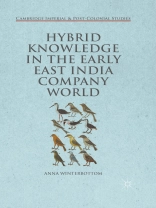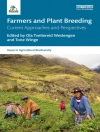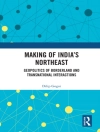Hybrid Knowledge in the Early East India Company World presents a new interpretation of the development of the English East India Company between 1660 and 1720. The book explores the connections between scholarship, patronage, diplomacy, trade, and colonial settlement in the early modern world. Links of patronage between cosmopolitan writers and collectors and scholars associated with the Royal Society of London and the universities are investigated. Winterbottom shows how innovative works of scholarship – covering natural history, ethnography, theology, linguistics, medicine, and agriculture – were created amid multi-directional struggles for supremacy in Asia, the Indian Ocean and the Atlantic. The role of non-elite actors including slaves in transferring knowledge and skills between settlements is explored in detail.
Mục lục
Introduction: Patronage and the Politics of Knowledge, 1660-1720
1. Curious Collectors and Infamous Interlopers: Samuel Baron and the EIC settlements in Southeast and East Asia
2. Linguistic Landscapes: Early English studies of Malay
3. Toleration and Translation: English versions of two Hindu texts from Bengal
4. Botanical and Medical Networks: Madras through the collections of two EIC surgeons
5. Bio-prospecting and Experimenting: Producing and Using An Historical Relation of Ceylon
6. Transportation and Transplantation: Slave Knowledge and Company Plantations
Giới thiệu về tác giả
Anna Winterbottom is British Academy Postdoctoral Fellow at the University of Sussex, UK. She is co-editor of The East India Company and the Natural World and has published several journal articles and book chapters on topics related to the history of science and medicine, the Indian Ocean region, and colonial history.












